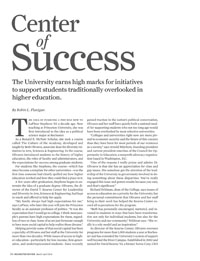Features
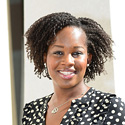
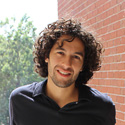
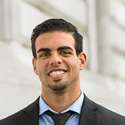
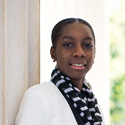

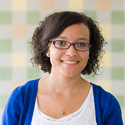
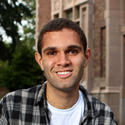
While issues of access to higher education—particularly for low-income, first-generation, and underrepresented students—have recently gained traction in the nation’s political conversation, Beth Olivares and the staff of the David T. Kearns Center for Leadership and Diversity in Arts, Sciences & Engineering have quietly built a national model for supporting students who not too long ago would have been overlooked by most selective universities.
The idea of pursuing a PhD was new to LaFleur Stephens ’02 a decade ago. Now teaching at Princeton University, she was first introduced to the idea as a political science major at Rochester.
As a Ronald E. McNair Scholar, she took a course called The Culture of the Academy, developed and taught by Beth Olivares, associate dean for diversity initiatives in Arts, Sciences & Engineering. In the course, Olivares introduced students to the history of higher education, the roles of faculty and administrators, and the expectations for success among graduate students.
For students like Stephens, the course—which has since become a template for other universities—was the first time someone had clearly spelled out how higher education worked and how they could find a place in it.
A few years after graduation, Stephens began to entertain the idea of a graduate degree. Olivares, the director of the David T. Kearns Center for Leadership and Diversity in Arts, Sciences & Engineering, had kept in touch and offered to help her apply.
“My family always had high expectations for me,” says LaFleur, who later this year will join the Princeton faculty as an assistant professor of politics. “It was the expectation that I would go to college. I think most people’s parents have high expectations for them, regardless of race or class. Some of us are just fortunate enough to have more social capital to help realize those dreams.”
Helping provide some of that social capital has been a specialty of Olivares and her staff at the University for more than two decades. While issues of access to higher education—particularly for low-income, first-generation, and underrepresented students—have recently gained traction in the nation’s political conversation, Olivares and her staff have quietly built a national model for supporting students who not too long ago would have been overlooked by most selective universities.
“Colleges and universities right now are more pivotal to economic security and the future of this country than they have been for most periods of our existence as a society,” says Arnold Mitchem, founding president and current president emeritus of the Council for Opportunity in Education, a nonprofit advocacy organization based in Washington, D.C.
“One of the reasons I really praise and admire Dr. Olivares is that she has an appreciation for class and gap issues. She somehow got the attention of the leadership of the University to get seriously involved in doing something about these disparities. You’ve really engaged this issue and gotten results because you care, and that’s significant.” Richard Feldman, dean of the College, says issues of access to education are a priority for the University, but the personal commitment that Olivares and her staff bring to their work has helped the Kearns Center exceed all expectations for the program. “Beth has personally encouraged, nurtured, and invested in students in ways that have been transformative not only for individual students, but also for the University and our community,” Feldman says. “She really is a role model and an inspiration.”
As director of the Kearns Center, Olivares oversees programs for more than 1,000 students a year at Rochester and has extended the University’s system of support well beyond the River Campus. Established in 2002 and named for David Kearns ’52, a former Xerox Corp. CEO who championed diversity in education as a business leader, national policymaker, and University trustee, the center is a focal point for many of Rochester’s efforts to support low-income, first-generation, and underrepresented minority students in Arts, Sciences & Engineering. Earning more than $10 million in federal, state, and local grants over the past decade, Olivares and her staff provide academic as well as social support to both students and parents.
The center’s key goal is to help increase diversity in American academia, from the student body to the faculty.
“Authentic diversity is integral to the success of American education and research,” Olivares says. “Knowledge can’t advance as it should if large segments of society are virtually absent from advanced learning, as is now often the case.”
Among the center’s programs is its original initiative, the Ronald E. McNair Postbaccalaureate Achievement Program, a U.S. Department of Education initiative named for Ronald Erwin McNair, a laser physicist who died in January 1986 aboard the NASA Shuttle Challenger.
In addition, the center supports about 20 Kearns Scholars each year as part of a program, partly funded by the National Science Foundation, to guide students to advanced study in science, technology, engineering, and mathematics—the so-called STEM fields—and
oversees the Xerox Engineering Research Fellows program, which provides intensive research experiences for students in engineering.
The center’s track record has impressed colleagues across the country:
- Among alumni Kearns Scholars, more than 50 percent are studying for graduate degrees in STEM fields.
- About 85 percent of Rochester McNair Scholars go on to graduate school, compared to about 45 percent among students in the national McNair Program.
- Since the McNair Program was established at Rochester in 1992, more than 100 students have earned doctorates. Olivares estimates that she has personally mentored more than 450 students, including 42 PhDs, 32 MDs, two doctors of pharmacy, and two doctors of psychology, as well as many others still in the educational pipeline. This year, Stephens becomes the first of her mentees to hold a faculty position at an Ivy League school. In nominating Olivares for one of the top mentoring awards from the National Science Foundation, Orlando Taylor, the president of the Washington, D.C., campus of the Chicago School of Professional Psychology, highlighted her success in mentoring future leaders in STEM fields:
“[Olivares] is known throughout the McNair community as one of the nation’s leading mentors of underrepresented undergraduate students.”
Olivares says she and her staff have recognized that fostering the idea among young people that a college education is attainable requires a long-term engagement, what she calls “intensive services” about how to get into college, how college works, and the requirements for success.
As part of that effort, the center has expanded its programs to include children in the Rochester City School District, establishing college-readiness programs for children from kindergarten through 12th grade. Through two federally funded Upward Bound programs, as well as drop-in centers at area high schools, younger students get an early look at what goes into earning a college diploma. About 150 undergraduates each year serve as tutors and mentors for the programs.
As the holder of a doctorate in English literature, Olivares knows that each student has a compelling story to tell about his or her hopes and ambitions when given the chance to talk about the future.
“In the communities that many of our students come from, being academically smart is not seen as a marker of success,” she says. “It’s something to be mocked or hidden. We’re that safe space. We say, ‘It’s OK to be smart,’ and ‘No one will hurt you for wanting to do something different.’ We want students to blossom into who it is they’re meant to be.”
Anthony Plonczynski ’06, ’08W (MS), the center’s associate director, says one of the keys to the center’s success is the attention the staff pays to thinking about students’ lives both inside and outside the classroom.
That sometimes means being life coaches as well as academic advisors, he says, noting that staff members often offer support to students during emotional and social interruptions that interfere with their academic lives.
Identifying those needs, and thinking creatively about how to address them, is a hallmark of the Kearns Center, says Olivares.
Says Plonczynski: “We want to be a sanctuary for students. We take this calling very seriously. We’re family.”
Robin L. Flanigan is a Rochester-based freelance writer.
